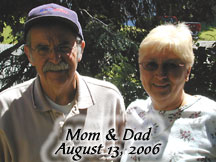Some news in the world of AD Medicine:
A new technique can detect plaque. This will help with diagnosis and also with the progress of plaque-fighting medicines, like the kind my dad just beta-tested. (In the Yale study.)
Scientists have confirmed that an imaging agent known as Pittsburgh Compound B binds to abnormal protein growth in the brain that are a signature of Alzheimer's disease.
An insulting multi-part Forbes Magazine article about how to make money running a nursing home, posted on March 1, 2007 Mona has already blogged this far better than I ever could. (Her blog is so classy, compared to my earthiness. But there's room and need for both styles.)
The article asks, Would you put your own mother in any old assisted living home? Clearly not--which means entrepreneurs running these facilities have to be on their games right out of the gate. That includes knowing how to get the right permits, having a handle on start-up costs, keeping an eye on the most meaningful performance metrics and even choosing the right role model for your business. In other words, you need to know the fundamentals.
Like how to CARE for sick, demented and sad people? How to hire quality staff who know what they are doing?
Protecting yourself from liability seems to be more important to Forbes than keeping patients happy, healthy and alive.
They consider the wants and needs of the aging to be "external threats", complaining that: The most creative assisted-living facilities are offering fatter menus, cocktail lounges and, yes, even sex-education classes. Others are adding services to encourage more family involvement--say, painting or acting classes for children--to make that weekly trip to visit Grandpa not quite so boring. Oh, how awful, to have to provide good food and painting classes. What a way to cut into profit margins.
The Technology section touts automated care: living management "solutions" to automate patient care. That is so repulsive I can't even put it into words. I can't imagine what it means and I don't want to know. The rest of the section focuses on things like sales leads and accounting software and how much it all costs. You'd think this would be about medical technology, heart monitors, "I've fallen and I can't get up" devices (which even my grandmother's ancient senior housing has--in the form of strings attached to alarms hanging from every wall in every room), more comfortable hospital beds and wheelchairs.
The Metrics section focuses on cash flow, occupancy rate and staff turnover. Not how healthy the patients are, how many get opportunistic infections or are injured or made sicker by staff errors and misjudgments.
Expenses bemoans every penny, like caregiving staffers and food and an activities director to keep your residents busy, while touting the nice 30% profit margin.
Permits whines that: After you break ground, expect regular inspections from the fire department, health department and other city agencies. When construction is complete, depending on the state's requirements, you or the executive director of the facility may have to take up to a week's worth of training in operating a facility. A whole WEEK of training? A WEEK!? To take care of sick and demented people? And how dare the fire and health inspectors come around and waste your time when you could be making money serving cheap food and using automated patient care rather than compassionate humans.
The final section, about supplies, deals with the logistics of buying cheap food and medicine. Enough said about that. Cheap medicine I can see (I used to work in procurement) but to go for the lowest bidder on food? For people who aren't well to begin with?
This entire article is basically how to make money off old sick people with the minimum amount of effort and care on your part. If that's what kind of person you are, go for it. But know that someday you'll be old and need care...and maybe someone will stick you in your own facility. Poetic justice.


1 comment:
Excellent, Bert, just excellent. I agree that there are a variety of ways to express the overwhelmingly negative reaction this article provokes...and room and need for all.
As an aside, yet again, today, I checked all the comment facilities on all the parts of the article. No comments are being published, despite the fact that we now know that some have been written. Maybe I'm not finding the proper link? Or, maybe, Forbes simply isn't interested in negative reactions. Thus, it is even more important that as many of us as possible register our reactions in our journals and litter our reactions with words that will surely come up in searches for such information, and for Forbes.
Post a Comment